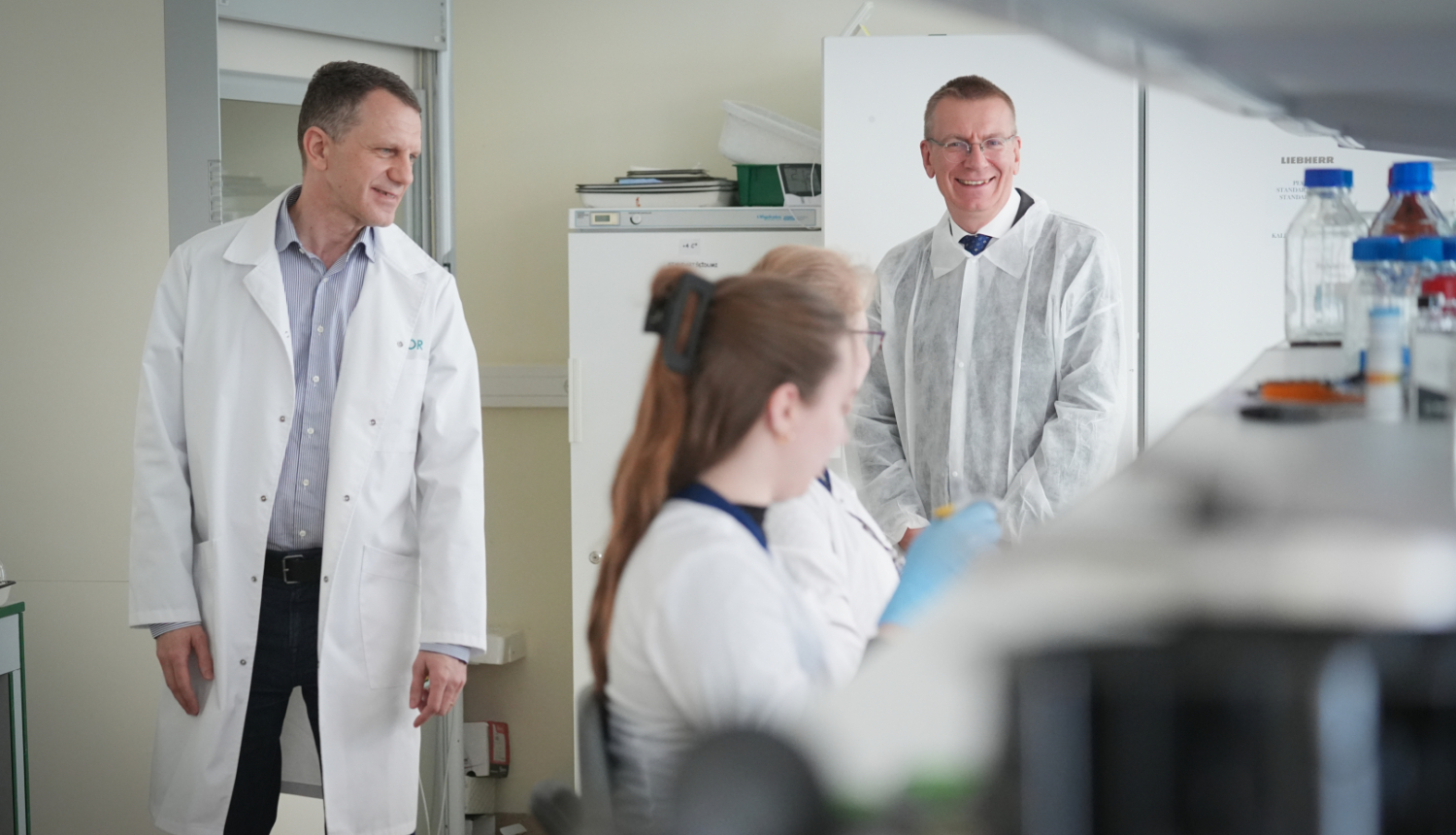On 12 May, President Edgars Rinkēvičs visited the Scientific Institute for Food Safety, Animal Health and Environment “BIOR” in Riga. During the visit, the President was introduced to the latest developments in research, the institute’s ongoing monitoring programmes and risk assessments in the areas of public health, the environment, food safety, fisheries, and animal health. He also gained insight into the operation of the Institute’s laboratories.
“Institution “BIOR” is one of the cornerstones in safeguarding our health and environment. It strengthens our preparedness for pandemics and enhances our diagnostic capabilities in identifying and eradicating dangerous diseases, viruses, and bacteria. The Institute’s contribution to virology is particularly commendable – research into rabies and African swine fever virus, the development of new control strategies and vaccines, advances in diagnostics for highly pathogenic avian influenza, as well as is its professional and prompt support to national institutions during various environmental crises.
By providing expert assessments and laboratory services to professionals in medicine, food production, agriculture, fisheries, and other sectors, the “BIOR” institute plays a crucial role in national environmental and public health monitoring and control.
The joint efforts of researchers and experts from the Institute’s diverse fields of specialisation are particularly commendable. Their integrated approach to exploring human and animal health as well as environmental protection issues provides invaluable contributions to the welfare and security of our country. Such a multidisciplinary approach enables more effective prevention, diagnosis, and treatment of diseases that can be transmitted between animals and humans. It also helps develop solutions that strike a balance between the needs of humans, animals, and the environment, while ensuring the sustainability of available resources,” said President Rinkēvičs after the visit.
During the visit, the President and the Institute’s leadership also discussed opportunities for enhancing cooperation with the food sector and the potential for innovation in the field of aquaculture. President Rinkēvičs praised the Institute’s dedicated work and contribution both during the Covid-19 pandemic and in the investigation of E. coli cases.





